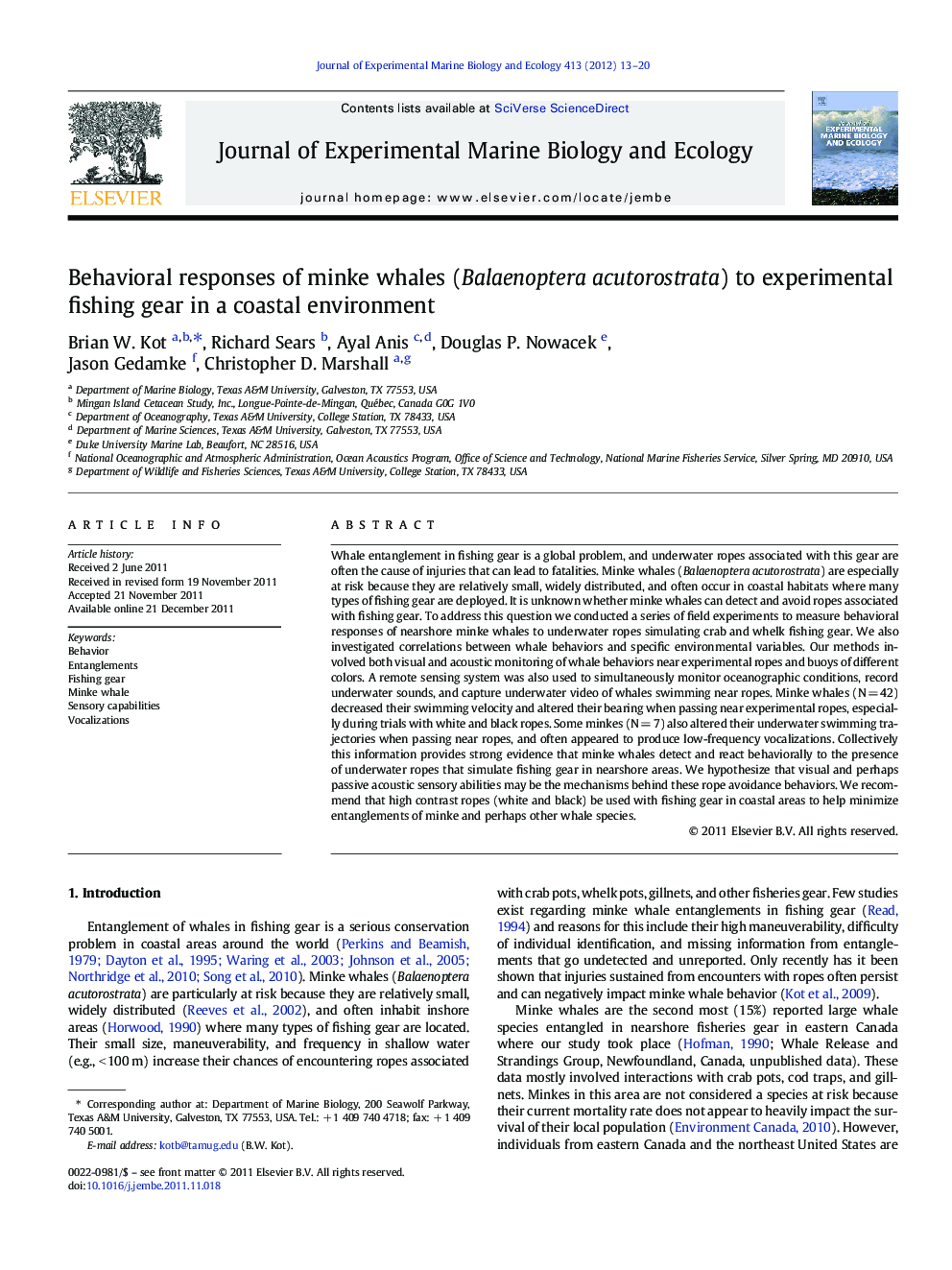| کد مقاله | کد نشریه | سال انتشار | مقاله انگلیسی | نسخه تمام متن |
|---|---|---|---|---|
| 4396120 | 1618451 | 2012 | 8 صفحه PDF | دانلود رایگان |

Whale entanglement in fishing gear is a global problem, and underwater ropes associated with this gear are often the cause of injuries that can lead to fatalities. Minke whales (Balaenoptera acutorostrata) are especially at risk because they are relatively small, widely distributed, and often occur in coastal habitats where many types of fishing gear are deployed. It is unknown whether minke whales can detect and avoid ropes associated with fishing gear. To address this question we conducted a series of field experiments to measure behavioral responses of nearshore minke whales to underwater ropes simulating crab and whelk fishing gear. We also investigated correlations between whale behaviors and specific environmental variables. Our methods involved both visual and acoustic monitoring of whale behaviors near experimental ropes and buoys of different colors. A remote sensing system was also used to simultaneously monitor oceanographic conditions, record underwater sounds, and capture underwater video of whales swimming near ropes. Minke whales (N = 42) decreased their swimming velocity and altered their bearing when passing near experimental ropes, especially during trials with white and black ropes. Some minkes (N = 7) also altered their underwater swimming trajectories when passing near ropes, and often appeared to produce low-frequency vocalizations. Collectively this information provides strong evidence that minke whales detect and react behaviorally to the presence of underwater ropes that simulate fishing gear in nearshore areas. We hypothesize that visual and perhaps passive acoustic sensory abilities may be the mechanisms behind these rope avoidance behaviors. We recommend that high contrast ropes (white and black) be used with fishing gear in coastal areas to help minimize entanglements of minke and perhaps other whale species.
► Whales decreased then increased velocity when passing experimental fishing gear.
► Whales changed swim bearing when passing experimental fishing gear.
► Strongest behavioral responses occurred during trials with white and black ropes.
► Whales produced stereotypic vocalizations near experimental gear.
Journal: Journal of Experimental Marine Biology and Ecology - Volume 413, 10 February 2012, Pages 13–20